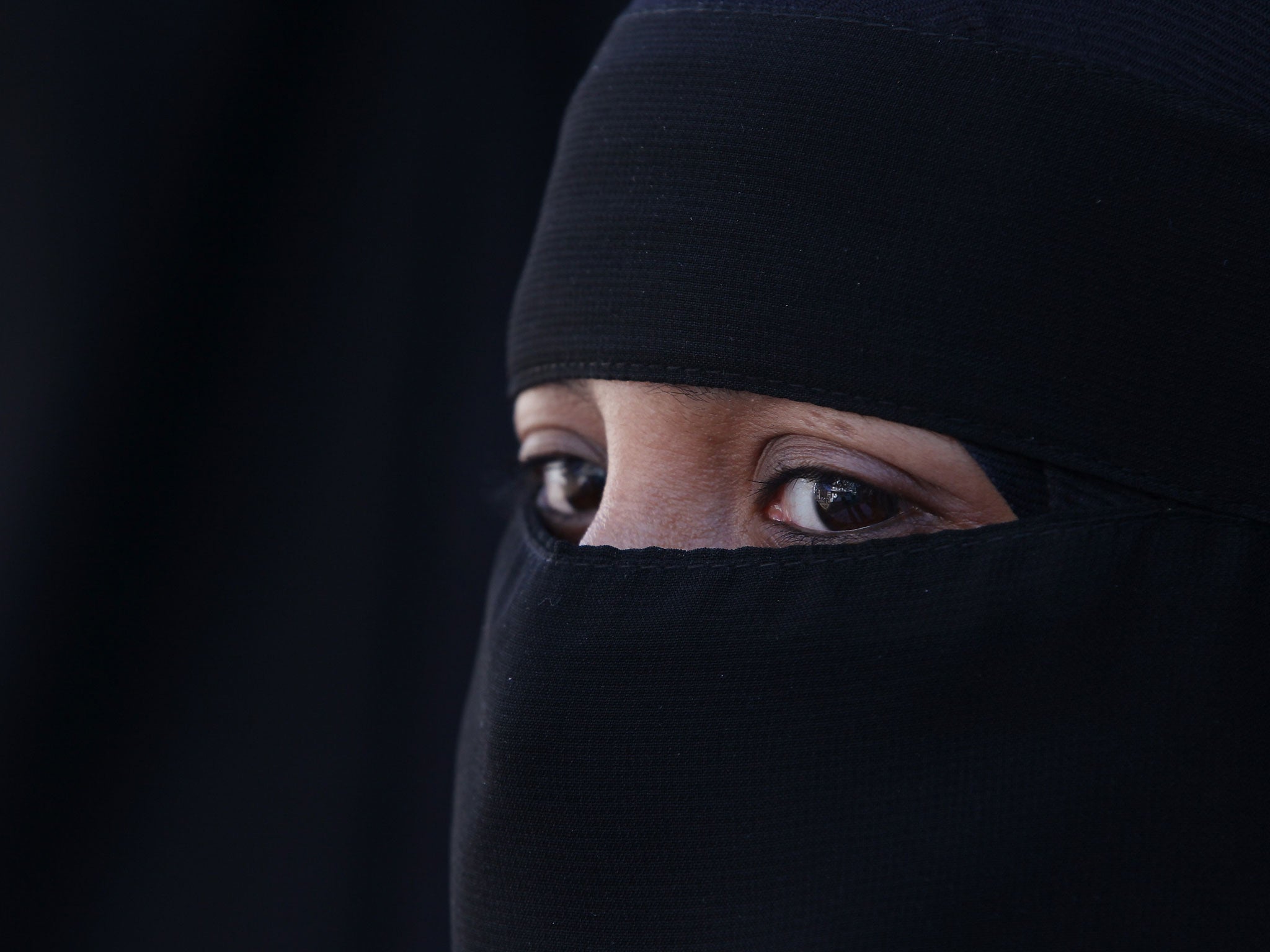European Court of Human Rights upholds French ban on full-face veils
24-year-old French woman argued that the ban on wearing the veil in public violated her freedom of religion and expression

Your support helps us to tell the story
From reproductive rights to climate change to Big Tech, The Independent is on the ground when the story is developing. Whether it's investigating the financials of Elon Musk's pro-Trump PAC or producing our latest documentary, 'The A Word', which shines a light on the American women fighting for reproductive rights, we know how important it is to parse out the facts from the messaging.
At such a critical moment in US history, we need reporters on the ground. Your donation allows us to keep sending journalists to speak to both sides of the story.
The Independent is trusted by Americans across the entire political spectrum. And unlike many other quality news outlets, we choose not to lock Americans out of our reporting and analysis with paywalls. We believe quality journalism should be available to everyone, paid for by those who can afford it.
Your support makes all the difference.The European Court of Human Rights has upheld a French law banning the wearing of the full-face veil, the niqab.
The Strasbourg-based court was ruling on a case brought by a 24-year-old French woman, who argued that the ban on wearing the veil in public violated her freedom of religion and expression.
The ruling by the European Court's Grand Chamber was immediately condemned by a leading UK human rights campaigner for "criminalising women's clothing". Liberty's director Shami Chakrabarti also linked it to "the rising racism in Western Europe".
The woman also argued that the law gives rise to "discrimination based on gender, religion and ethnic origin, to the detriment of women who wear the full-face veil".
The woman was not named in the complaint which was brought to the court in April 2011. The case potentially has important implications for the UK where the possibility of banning the veil has long been discussed.
The law, which was passed in 2010, and went into effect the following year, forbids anyone to hide his or her face in an array of places, including the street.
The court's Grand Chamber, the highest forum, rejected the arguments of the French woman.
It ruled that the law's bid to promote harmony in a diverse population is legitimate and doesn't breach the European Convention on Human Rights.
Video: An unidentified muslim woman talks about the controversial law
The European Court's Grand Chamber declared, by a majority, that there had been no violation of the Article 8 right to respect for private and family.
It also held there had been no violation of Article 9, which protects respect for freedom of thought, conscience and religion, and the law was not discriminatory under Article 14.
The court Registrar said in a statement that the European judges had taken into account the French submission that the face "played a significant role in social interaction".
It has also taken account of the view that "individuals might not wish to see, in places open to all, practices or attitudes which would fundamentally call into question the possibility of open interpersonal relationships" which formed "an indispensable element of community life".
The statement said: "The court was therefore able to accept that the barrier raised against others by a veil concealing the face was perceived by the respondent State as breaching the right of others to live in a space of socialisation which made living together easier."
Although the law admittedly had "specific negative effects" on Muslim women, it had "an objective and reasonable justification", the court ruled.
The overall decision was by a majority, with two judges giving a dissenting opinion.
The UK human rights pressure group Liberty intervened in the court case, arguing against the ban.
After the ruling, Liberty's director Shami Chakrabarti said: "How do you liberate women by criminalising their clothing?
"If you suspect bruises under a burka, why punish the victim, and if you disapprove of the wearer's choices how does banishing her from public engagement promote liberal attitudes?
"Banning the veil has nothing to do with gender equality and everything to do with rising racism in Western Europe."
Join our commenting forum
Join thought-provoking conversations, follow other Independent readers and see their replies
Comments